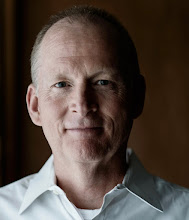 I'm convinced that a critical task of leaders and leadership is managing change appropriately... as nothing can be as upsetting to people as change. Nothing has greater potential to cause failures, loss of confidence, or falling expectations than change. Yet nothing is as important to the survival of a church or organization as change. History is full of examples of organizations that failed to change and that are now extinct.
I'm convinced that a critical task of leaders and leadership is managing change appropriately... as nothing can be as upsetting to people as change. Nothing has greater potential to cause failures, loss of confidence, or falling expectations than change. Yet nothing is as important to the survival of a church or organization as change. History is full of examples of organizations that failed to change and that are now extinct. The key is appropriately managing change.
Resistance to change comes from a fear of the unknown, or an expectation of loss. The front-end of an individual's resistance to change is how they perceive the change. The back-end is how well they are equipped to deal with the change they expect.
An individual's degree of resistance to change is determined by whether they perceive the change as good or bad, and how severe they expect the impact of the change to be on them. A person's ultimate acceptance of the change is a function of how much resistance to the change they have, and the strength of their coping skills and their willingness to trust their leaders. The leader's challenge is to address this resistance to change from both ends in order to help the individual reduce it to a minimal, manageable level. It can never be a function of leadership to bulldoze individual's resistance so change can move ahead.
Leaders have to help those they lead understand the purpose behind change. People want to know what the change will be and when it will happen, but they also want to know why. Why is it happening now? Why can't things stay like they have always been? Why is it happening to me?
It is also important that leaders help people understand what is not changing. Not only does this give people one less thing to stress about, it also gives them an anchor, something to hold on to as they face the winds of uncertainty and change.
Leaders need to understand people's specific fears... and then speak to those fears... and then walk with those they lead through the change.

